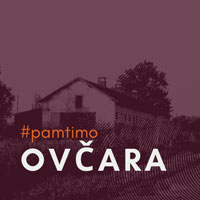Three Decades since the Crime in Ovčara – We Remember the Victims
 Saturday, November 20, 2021, marks the 30th anniversary of the crime committed on the Ovčara farm near Vukovar, when members of the local Territorial Defence (TO) and Serb volunteers under the command of the Yugoslav People’s Army (JNA) killed 265 Croatian civilians and prisoners of war. On this occasion, the Humanitarian Law Center (HLC) reminds of the court-established facts about the crime in Ovčara and calls on the state institutions to pay tribute to the victims.
Saturday, November 20, 2021, marks the 30th anniversary of the crime committed on the Ovčara farm near Vukovar, when members of the local Territorial Defence (TO) and Serb volunteers under the command of the Yugoslav People’s Army (JNA) killed 265 Croatian civilians and prisoners of war. On this occasion, the Humanitarian Law Center (HLC) reminds of the court-established facts about the crime in Ovčara and calls on the state institutions to pay tribute to the victims.
Immediately after seizing Vukovar, on November 20, 1991, JNA members took the injured, ill, civilians and members of the Croatian Armed Forces from the Vukovar hospital and took them to hangars on the Ovčara farm, about five kilometres southeast of Vukovar. From the moment they were brought to Ovčara, members of the Vukovar TO and the “Leva Supoderica” unit, composed mainly of volunteers from the Serbian Radical Party, beat, humiliated and abused detained Croats, all in the presence of members of the JNA Military Police. In the evening, members of the JNA withdrew from Ovčara following the orders of Colonel Mile Mrkšić. Members of the Vukovar TO and the “Leva Supoderica” volunteer unit took detainees out of the hangar during the night between November 20 and 21, 1991 and took them in groups of 10 to 20 people toward Grabovo. There, they were shot standing in front of a previously prepared mass grave. In Ovčara, besides wounded members of the Croatian armed forces, civilians, women and children were killed: Ružica Markobašić (32), who was in the late pregnancy at the time, Janja Podhorski (60), Dragutin Balog (17) and Igor Kačić (16).
200 bodies were exhumed from the mass grave at the Grabovo site, and 193 victims were identified. Seventeen bodies of the victims were found in the surrounding graves, while the bodies of dozens of victims are still being searched for.
Before the International Criminal Tribunal for the former Yugoslavia (ICTY) final verdict was pronounced against the JNA Colonel Mile Mrkšić and Major Veselin Šljivančanin for the Ovčara crime. Despite the fact that the evidence presented before the ICTY unequivocally indicates the responsibility of several JNA officers and non-commissioned officers for the events in Ovčara, in 2004 the War Crimes Prosecutor’s Office filed an indictment only against the direct perpetrators of the crimes. In 2018, after 14 years, 11 people were sentenced for this crime to multi-year imprisonments before the court in Serbia.
Based on the criminal verdict of the Belgrade Court of Appeals in which it was established that the TO Vukovar and the volunteer units were under the command of the JNA, the courts in Serbia, during 2021, brought four final verdicts by which family members of victims from Ovčara were awarded damages (reparations). In that way, Serbia acknowledged the responsibility of the JNA for the crime committed on the Ovčara farm. These verdicts are very important because they declare Serbia responsible and undertake to pay reparations for the damage that its bodies, in this case the JNA, caused during the wars in the former Yugoslavia. With these verdicts, the families of the victims of the crimes in Ovčara received material compensation in the form of reparations, but also symbolic satisfaction in the form of a judicial decision on the responsibility of the state of Serbia.
In memory of the victims of the crimes in Ovčara, the Ovčara Memorial Centre was founded, and opened on the 15th anniversary of the crime, on November 20, 2006, in one of the hangars on this agricultural property. The Ovčara Memorial Centre is one of the locations where commemorative activities are held on Remembrance Day (November 18). On this day, the highest state officials of Croatia, as well as many other citizens, lay wreaths at the Ovčara Memorial Centre.
Serbian state officials do not attend the commemorations in Vukovar, nor do they pay tribute to the Vukovar victims in other ways. Veselin Šljivančanin, who was convicted of the crime in Ovčara, is today a member of the Main Board of the ruling Serbian Progressive Party. Since he was released from prison in 2011, he has held more than 30 promotions of his books, in public institutions throughout Serbia. By rehabilitating war crimes criminals and ignoring victims who are not of Serbian ethnicity, state institutions are conducting a historical revision of the wars of the 1990s.
The HLC remembers the victims of the crimes in Ovčara and appeals to Serbian institutions to abandon the policy of silence about war crimes committed by Serbian forces.






